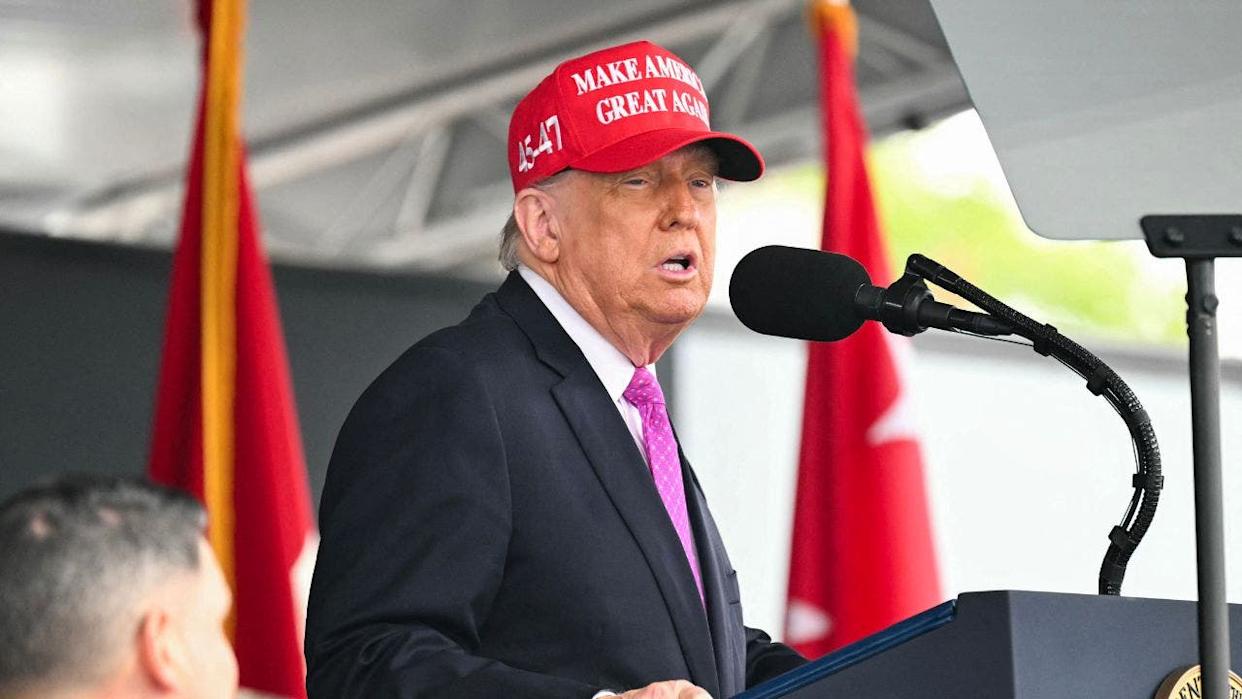When Donald Trump took the oath of office for his second term in January, he declared himself a man of peace.
“My proudest legacy will be that of a peacemaker and unifier,” he told a divided America and an anxious world.
Just over 100 days later, on a tour of wealthy Arab states, he claimed the world was already safer.
He cited Ukraine as evidence, boldly stating, “I think in two or three weeks we can have a much safer place.”
But after months in office, has Donald Trump truly made the world safer? Or has he merely redefined chaos as strength?
On the ground, the reality is grim. Ukraine is enduring one of the deadliest phases of Russia’s full-scale invasion.
Russian forces have launched their most intense drone and missile assaults since the war began in 2022.
Trump claims only he can deal with President Putin, but Moscow is showing no signs of slowing down.
In Gaza, Trump’s declared push for a ceasefire has faltered. Red Cross staff report the highest number of weapons-related injuries since their field hospital was established.
Despite a temporary truce in January, hailed by Trump as “epic,” the ceasefire collapsed by March, and the violence surged again.
Trump’s “peace through strength” mantra is rooted in strongman diplomacy. He avoids nuance, favors dramatic threats, and relies on personal phone calls over complex negotiations.
He once said he could end wars “in a day.” The wars in Ukraine and Gaza expose that claim as fantasy.
Still, some glimmers of hope exist. Nuclear negotiations with Iran, mediated by Oman, are inching forward.
Trump has made it clear he wants a deal that averts war.
Yet Israel’s shadow looms large over those talks, with speculation of pending military action adding tension.
Syria, battered by over a decade of war, has been granted a brief economic reprieve after Trump lifted US sanctions—at the urging of Saudi allies.
But experts caution that economic relief won’t erase the country’s deep political wounds or humanitarian crisis.
Trump’s reliance on real estate allies rather than career diplomats reflects his transactional worldview.
Steve Witkoff, his former real estate lawyer and golf partner, now manages peace efforts in Ukraine, Gaza, and Iran. It’s a model of diplomacy-by-dealmakers, not diplomats.
He scoffs at traditional diplomacy. “They may know the rivers, the mountains, the terrain, but they doesn’t know how to do a deal,” Trump said. But diplomacy is not real estate. You can not flip a battlefield like you flip a condo.
Beyond conflict zones, Trump’s erratic foreign policy has sent shockwaves through the global order.
His repeated musings about buying Greenland, annexing Canada, and seizing the Panama Canal have alarmed allies and adversaries alike.
His steep tariffs have triggered economic retaliation and widened rifts with long-time partners.
Yet Trump has managed to push NATO allies into raising their military spending.
He even played a role in brokering a ceasefire between India and Pakistan, though it was far from a solo effort. It was a reminder that American pressure, even when delivered with bluster, still carries weight.
However, Trump’s “America First” approach has meant ignoring bloodshed in places like Sudan, where mass killings and famine go largely unnoticed in Washington.
The president’s proposed minerals-for-security deal in Congo has drawn criticism for prioritizing profit over peace.
“If you could use a mineral deal to end decades of war, then there are countries who would have fixed that already,” said Comfort Ero, president of the International Crisis Group.
Trump’s deep cuts to USAID and UN agencies have further weakened America’s humanitarian footprint.
In regions already ravaged by war and displacement, such decisions fuel despair.
Even Trump’s own allies acknowledge the limits of his brash diplomacy. “Deals take forever,” says former UN Under-Secretary General Martin Griffiths.
“You have to start and you have to stay.” Trump, by contrast, grows impatient and threatens to walk away if results don’t come fast.
In the end, the Trump doctrine seems less about peace than control — control through threats, deals, and dominance.
He may have pushed some adversaries to the negotiating table.
But he hasn’t stopped the wars. He hasn’t prevented new ones. And he certainly hasn’t brought lasting peace.
So has Donald Trump made the world safer? The evidence suggests otherwise. In his quest to project strength, he may be lighting more fires than he’s putting out.



